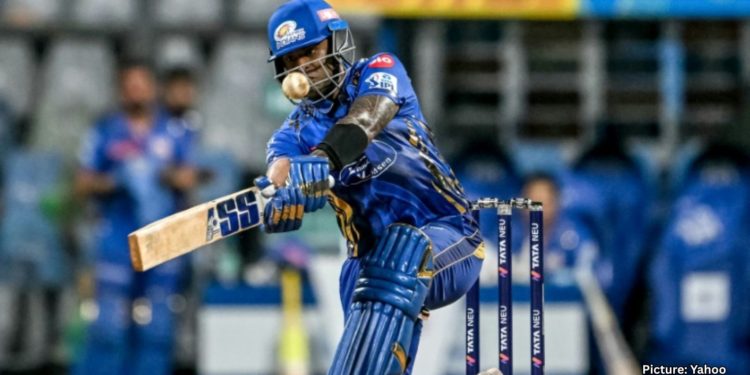In the recent match, Kolkata Knight Riders emerged victorious by eight wickets against Chennai Super Kings. The team’s strong performance saw opener Narine scoring 44 runs and also taking 3 wickets, while Rana and Varun took 2 wickets each. On the other hand, Chennai Super Kings could only manage to score 103 runs with Dube being the top scorer at 31*. Noor from Chennai took one wicket for just 8 runs.
That’s the result when KKR gets their favored pitch. Narine, Chakravarthy, and Ali (12-1-55-6 altogether) took control at Chepauk, stealing wickets from the formidable five-time IPL champions. As a result, CSK appeared lackluster and depleted. The team only managed to score 103 runs for 9 wickets, their lowest home total in the IPL and marking their fifth consecutive loss – a first in their history. Currently, they are stranded in ninth position on the points table. It seems like Dhoni has his work cut out for him as he returns to captaincy.
The KKR team will have the advantage of playing on their own turf.
A key feature of a black-soil pitch is its slow and gripping nature, providing a sense of familiarity. This may seem odd, given that home has not provided that same feeling for KKR this season. Despite their efforts to create similar conditions at Eden Gardens, it has been unsuccessful. Ajinkya Rahane avoids discussing it, but he did witness a remarkable bowling display under his supervision.
Moeen was included in the XI and given the task of bowling to CSK’s two left-handed openers. Despite Devon Conway’s efforts, he was unable to overcome the challenge. The offspinner from KKR claimed a wicket maiden in his first over, followed by Rachin Ravindra’s dismissal in the next over. By the end of the powerplay, CSK were struggling at 31 for 2, just slightly better than their season low of 30 for 3 against RCB.
In order to beat the CSK team, their opponents simply need to exploit their middle order. Although Rahul Tripathi was brought in to replace Ruturaj Gaikwad, he struggled with deciding whether to attack or play conservatively. This resulted in a final score of 16 runs off 22 balls. Vijay Shankar had multiple chances for dismissal, but KKR’s dropped catches allowed him to stay on the field. However, even with these missed opportunities, he still failed to push his score higher. Shivam Dube joined the game at a precarious 59 for 3 and despite having faced only 13 balls at that point, CSK quickly slipped to 75 for 8. This put them at risk of recording their lowest total in IPL history.
Dhoni enters, then exits
Once again, Narine showed his remarkable bowling skills in the IPL as he bowled four consecutive overs without giving up a single boundary for the 16th time in his career. He also claimed the wickets of Tripathi, Jadeja, and Dhoni, who all struggled to anticipate which direction the ball would turn. Although there was some uncertainty about the Dhoni lbw dismissal, UltraEdge technology displayed faint murmurs as the ball passed the bat.
CSK found themselves suffocated, enduring a lengthy gap of 63 balls without boundaries – a feat only accomplished by two other teams in the tournament. In fact, they were only able to strike three more after the initial eight overs, with one being a lucky shot off a top edge. As a countermeasure, they utilized Deepak Hooda as their Impact Player, despite the inherent risk of being down one bowler when defending their total. Unfortunately, this decision proved unwise as Hooda was out for zero and another integral player for CSK, Matheesha Pathirana, was unable to participate in the match.
The task of defending 103 runs can be unrewarding as bowlers often push themselves to take wickets, resulting in conceding runs. Following a disappointing performance in their batting powerplay, CSK’s bowling powerplay was also lackluster. KKR managed to score 71 runs in the initial six overs, making the game one-sided.



















